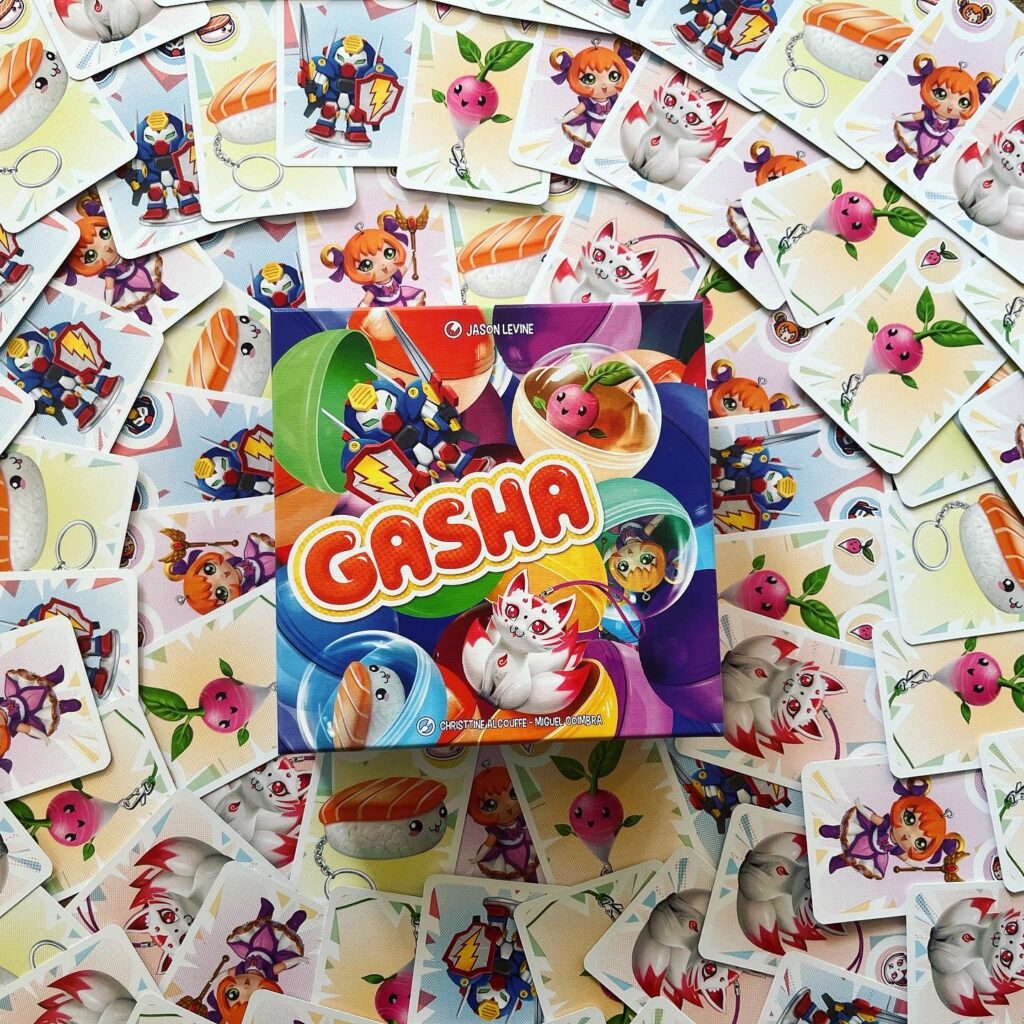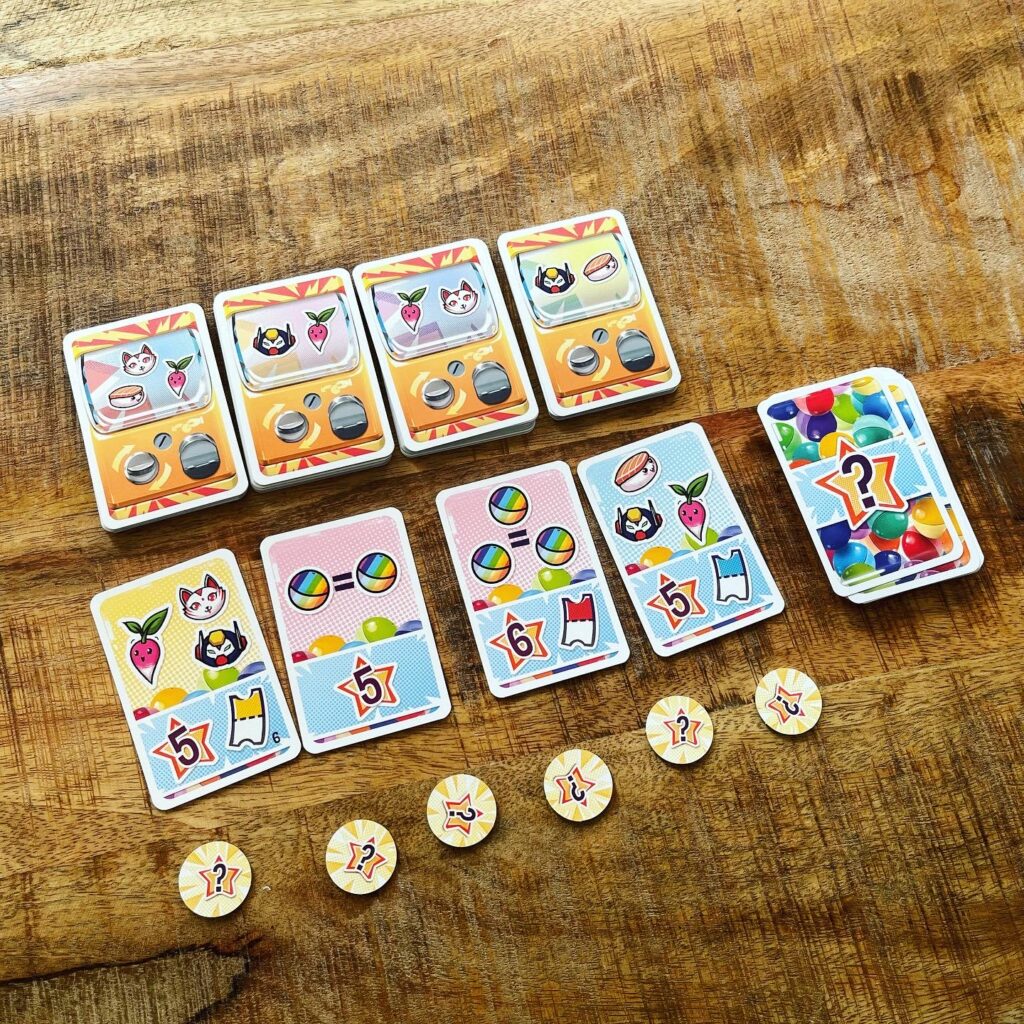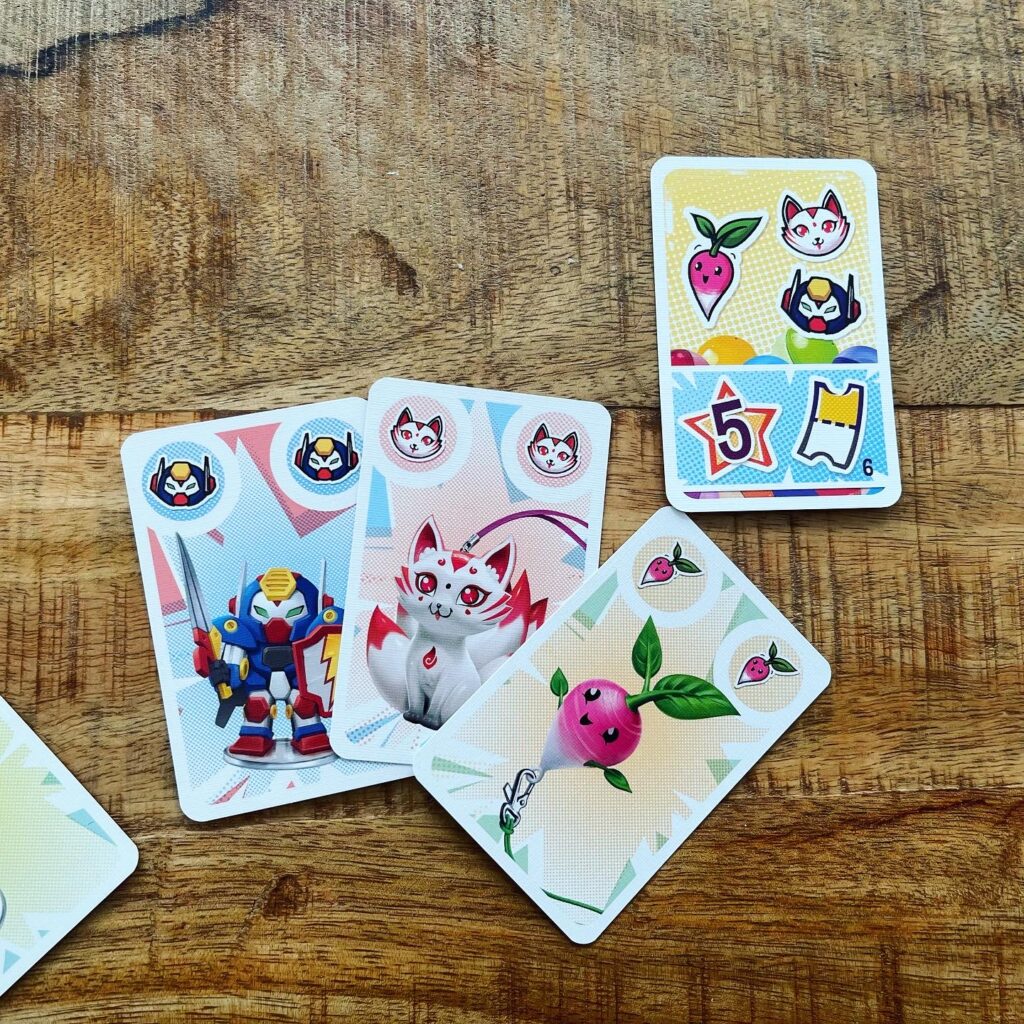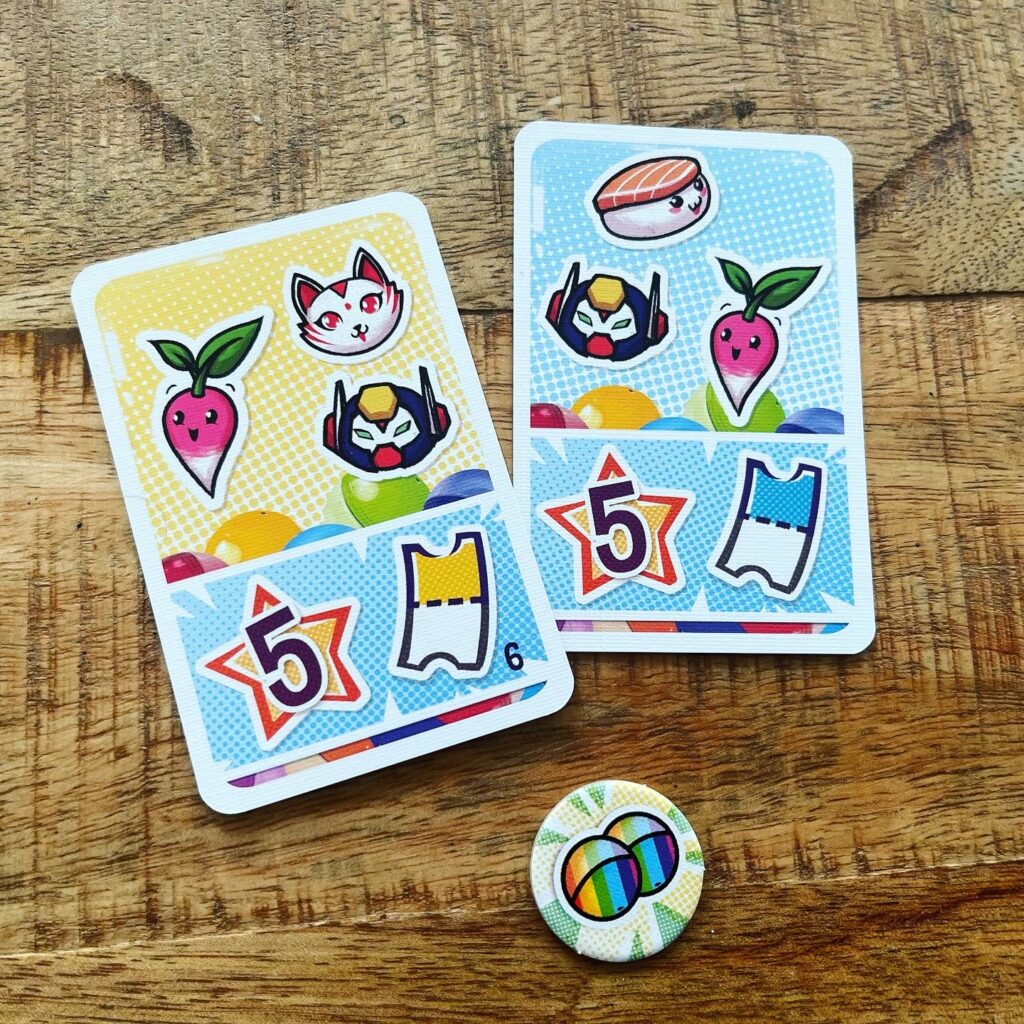Gashapon (or Gachapon) are special vending machines from Japan. Put some coins in the vending machine and a plastic ball (a capsule) containing a surprise rolls out. Capsule machines are not exclusive to Japan and were not invented there either, but these machines are extremely popular on the island and the Japanese have taking these capsules to max. The capsules are often filled with toys, key rings or candy, but due to the popularity of these machines, they are also often filled with collectibles (such a figures) based on popular anime, manga, movies or even everyday things, animals and art objects. You know what you might find in these capsules (it’s indicated on the machine after all), but which specific toy you actually receive remains a surprise. In the game Gasha, published by Gam’inBIZ, it is likewise a surprise which card you will draw. Will you be able to gather the best collection?

The Japanese name Gashapon, like many other names in the Japanese language, is an onomatopoeia or sound imitation. It is a word or name that phonetically describes the sound of the object in question. “Gasha” is the sound you make when you turn a crank on the machine after inserting coins. “Pon” is the sound the capsule makes when it falls out of the machine. The excitement is palpable as you turn the knob and wait for your capsule. Oooh, which toy will you receive now! Ah, bummer… Unfortunately, you already got that toy in the past. The same tension can be felt in the Gasha card game. The theme has been intuitively incorporated into the game mechanics. How does this game capture that feeling?
In Gasha, players take turns performing one of two possible main actions. You can draw 2 Gasha cards or claim a reward. On the table four closed stacks of Gasha cards are placed, each card containing 1 toy. What’s special about these cards is that the backs of these cards show which toy might be depicted on the front of a card. Since you draw specific cards, you have to take your chances and hope to receive the right toy, just like in the real Gashapon machines. This makes the theme very simple yet impressive.
With their acquired toys, players can claim rewards. In addition to the Gashapon cards, a number of reward cards are placed open on the table. Each of these reward cards shows which and how many toys a player must discard to claim the card. Some cards also show the half of a ticket. If you manage to combine two halves into a whole ticket, you may take a bonus token.



Gasha is an extremely simple and family-friendly game. The theme is, as already described, handled in an intuitive way. The colourful design will certainly appeal to fans of Anime and Japanese culture. The game can be explained in just a few minutes and a gameplay is very fast. I would therefore recommend Gasha to fans of quick and simple card games.



